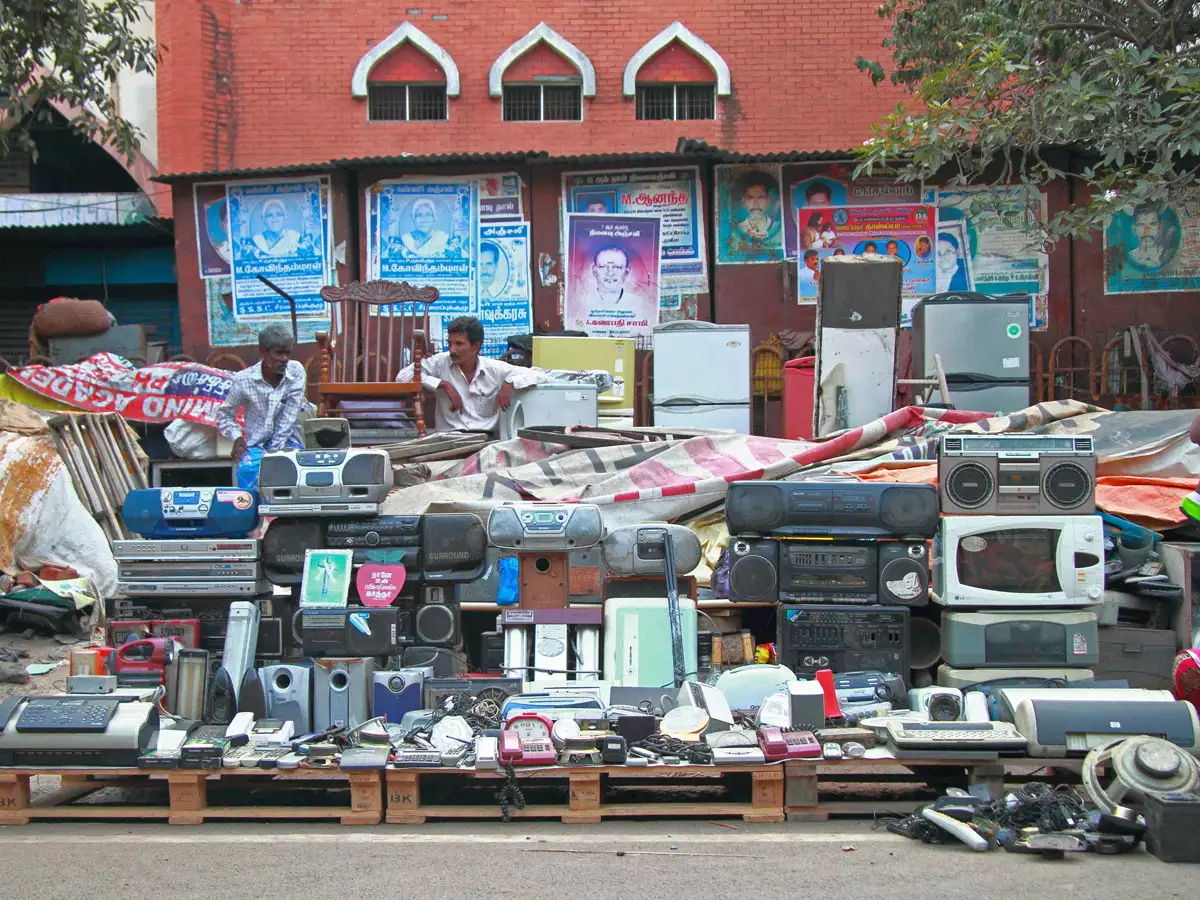Small And Large Businesses: The Growing Threat Of Substitutes And Second-hand Goods

TIMI OLUBIYI,Ph.D.
The Coronavirus (COVID-19) pandemic, as well as the economic turbulence, have had significant impacts on businesses, manufacturers and households, including individual lifestyles and well-being in recent times. The direct consequence of these impacts has been a very large increase in inflation numbers in the country, and it is currently having serious implications. Globally, no country is immune to inflation. Around the world, inflationary pressure has been experienced in the USA, the UK, and many other developed and developing nations. But in Nigeria, the peculiarity is that inflation has been getting higher steadily for the last two years.
Nigeria is one of the countries where inflation has grown the fastest, and it has been a concern for many businesses, and the government due to its severe impact post -COVID-19. Lately, we have witnessed continued and unexplainable increases in the price of practically every known item and service across the country. The troubling trend is that most of these basic and essential necessities are increasingly out of reach for the majority of people. Indicating that the country’s cost of living has risen at an alarming rate. That is, the rise in household spending required to maintain a consistent and decent quality of life has been a source of anxiety for many. The National Bureau of Statistics (NBS) says Nigeria’s headline inflation rate increased to 18.24 percent on a year-on-year basis as of June 2022. The percentage change is the highest in the last five years, according to the records.
Though academic literature has pointed out that once inflation exceeds a certain level, on average above 15%, it starts to have a negative impact on the economy, principally on economic stability, growth, employment and investment attractiveness. Even so, the author thinks that the real inflation in an economy is shown by the rise in prices of food, groceries, and other goods and services that people use every day.
Without a doubt, the food inflation trend over the last two years has been overwhelming. The proportion of the majority’s income that is spent on food has remained ridiculously high. The persistent rise in inflation results in a decline in the buying power of Nigerians, who are therefore getting poorer. Because they will be forced to prioritise significant spending and the affordability of essentials will continue to decrease. The consequences of high inflation are a spike in unemployment numbers, a rise in poverty rates, declining savings, a high number of jobless youths, crimes, and unrest.
A report by Aljazeera titled “Inflation rises in Nigeria amid fuel scarcity and insecurity” indicated that four (4) out of ten (10) Nigerians are living below the poverty line. So, with this trend, the author has noticed a spike and sharp rise in the demand for substituted products and services by the majority of the citizenry in the country. The substitution effect usually happens when consumers replace very expensive items with cheaper ones due to price changes or when their financial conditions regress, and vice-versa. However, the point is about the decline in purchasing power due to inflation and its attendant consequences.
The cost of purchasing products and services required to maintain a given quality of life continues to be a major worry for many families and individuals in the country. According to the substitution effect, people switch from more expensive products and services to less expensive alternatives when prices rise or income declines.
For the majority of businesses, the persistent inflation in the country has made the high cost of running and maintaining independently generated power unbearable, particularly the cost of diesel. This has resulted in a high cost of running businesses. However, this cost is passed on to the consumers without notice. When this cost is passed and consumers find it intolerable, then a change in demand by switching to substitute products and services prevail.
The propensity for this trend is high and it has been the order of the day. Substitute products or goods are alternative goods that could be used for the same purpose. Therefore, in the presence of inflation, substituting means that consumers seek out alternatives that are frequently low in price, most of the time low in quality, inferior, and largely unregulated. The demand for substitutes continues to rise because the masses need to survive at all costs, so who has the blame? The consumers or the businesses? So long as the price of goods and products continues to increase, demand for their substitutes will continue to rise. Consequently, business operators need to be aware of this. For instance, numerous salary earners have been forced to reduce the quality of the food they purchase, and business owners continue to replace family food basket staples with any affordable alternative. Meanwhile, the expenses of transportation, school fees, electricity, cooking gas, and rent are equally on the rise, adding to the burden.
From a business perspective, substitute products create rivalry, loss of revenue, weak sales, loss of potential customers or consumers, low or no patronage, and threats to business survival. The main absurdity is that businesses cannot even identify the providers of these alternatives, because they remain largely in the dark. For instance, canned and jarred Sardine Titus is expensive, but Sardine Estus an alternative is available and affordable but the producers are faceless and unknown. Many of such competitors are available in the Nigerian market with a huge market share and competitive pressure. However, the quality of these readily available cheap alternatives is significantly compromised, and market-leading companies and products could even suffer business continuity issues if the lower-priced alternative continues to gain market share and interest of the masses.
As a response, it is a time for businesses to re-strategise, engage in high marketing and promotional campaigns, innovate in line with customer expectations and patronage-improving products, and lower prices. Again, businesses can review their pricing model at this time to accommodate consumers and customers with waning purchasing power. It is also important for the government to play a bigger role in regulating substandard, inferior, and bad products, especially those that are dumped on the Nigerian market. Right now, it’s important to look at and understand how substitution can affect the economy, businesses, and environment in order to stop high death rates and illnesses.
Businesses can fail entirely as a result of substitute effects and substitution products outperforming the original. In a market where there are fewer substitute products, there is a higher probability of businesses earning greater profits, but the reverse is the case, with inflation and the current realities. So, entrepreneurs, business owners, and SME operators need to clearly understand that their businesses may just suffer from a substitution effect, which can weaken the sales of their products and may be attributed to consumers switching to cheaper alternatives just because they no longer have affordability or the price hike is unbearable. In the view of the author, consumers largely make their choices based on their available spending power and make constant adjustments based on price changes, most of the time on impulse. So, in a time of high inflation and low consumer spending, cheaper substitutes and second-hand (used) items) are the alternatives that are available. Observation of the surroundings reveals every accessible space or place for micro businesses to operate, it’s an avenue to trade in second-hand items which the majority now prefer as alternatives owing to dwindling income and affordability at this time due to inflation. This can make it harder for well-known brands or established businesses to get patronage and remain in business if differentiation or other business strategies are ignored to stay cost competitive.
Many are unaware that the high inflation rate in the country is one of the major reasons why Naira is losing value. Therefore, the authors recommend that the government should make a deliberate effort to tackle the key issues in the country: insecurity, incessant power issues, continued exchange rate instability, and non-availability of forex to genuine business operators and exporting companies. Inflation could remain an issue unless these issues are given headlong attention. Good luck!
How may you obtain advice or further information on the article?
Dr. Timi Olubiyi, an Entrepreneurship & Business Management expert with a Ph.D. in Business Administration from Babcock University Nigeria. A prolific investment coach, author, seasoned scholar, Chartered Member of the Chartered Institute for Securities & Investment (CISI), and Securities & Exchange Commission (SEC) registered capital market operator. He can be reached on the Twitter handle @drtimiolubiyi and via email: drtimiolubiyi@gmail.com, for any questions, reactions, and comments . The opinions expressed in this article are that of the author- Dr Timi Olubiyi and do not necessarily reflect the views of others.








